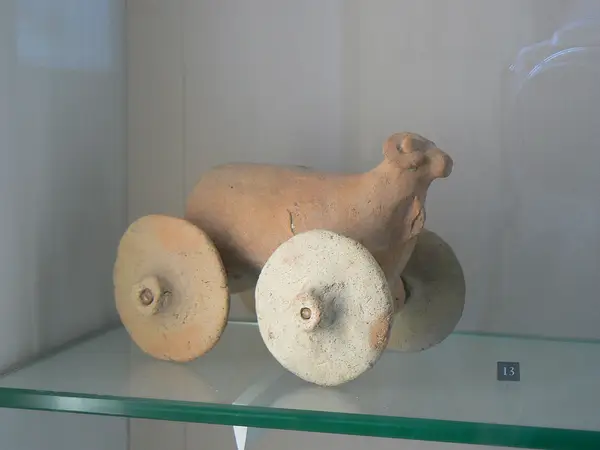Iranian archeologists object to a plan in parliament to legalize private archeological excavation and trade in ancient artifacts and antiques.
In an open letter to Parliament Speaker Mohammad-Bagher Ghalibaf Wednesday, sixty-one archeology professors expressed deep concern over a motion, entitled "Optimum Use of Ancient Artifacts and Treasures", and demanded it to be shelved.
The motion has not officially been presented on the parliament floor yet but a copy of it has circulated in the media.
Archeologists said the planned was prepared without any consultations with expert organizations such as the Research Institute of Cultural Heritage and Tourism, the Society of Iranian Archeologists, or the Archeology Taskforce of the Ministry of Science and is in contradiction to several existing laws which regulate archeological excavation and trade in items of historical value.
The proposal also reinforces public perceptions that Islamic Republic officials are corrupt and take advantage of national wealth to enrich themselves.
The 46 lawmakers behind the motion, argue that legalizing trade in historical artifacts which will stop illegal trade and smuggling, could help Iran turn into a "regional hub of trade," and bring hard currency income to the country.
In their letter, archeologists strongly objected to selling the historical wealth of the country to procure income. Privatizing excavation and legalizing trade will also deprive the country's own museums, which will not be able to compete with private buyers, and deprive then of any future findings, they said.
Moreover, approval of the motion could result in inexperienced excavators damaging archeological sites and their contents as well as lack of proper reporting of information related to the excavation sites and other related information which are of great significance to historians and archeologists.
Iran has numerous prehistoric and ancient sites many of which are still unexplored. Some of these sites, such as the paleolithic Ghogha Golan in the foothills of the Zagros mountains in the west of the country date back to as far back as 10,000 years.
Massive collections of ancient Persian artifacts excavated by foreign archeologists before the twentieth century adorn many top museums in the world such as the Louvre in Paris, the British Museum in London, the University of Chicago's Oriental Institute Museum, and the State Hermitage Museum in Saint Petersburg, Russia.
Hamid Baghaei, Chief of the Cultural Heritage Organization and a close confidante of former President Mahmoud Ahmadinejad in 2010 sought to legalize trade in historical artifacts and antiques and establish an international exchange on Kish Island in the Persian Gulf. The plan raised much objection and was eventually discarded.
On Wednesday, Hossein Jalali, one of the lawmakers who put his signature on the motion, told Entekhab news website that he has realized that critics are right, and the motion is faulty. One of the provisions in the proposed law may result in numerous excavations and the removal of excavated artifacts from the country, he said.
According to current laws, excavation for historical artifacts and transferring them outside Iranian borders without approval of the authorities are illegal and punishable by cash fines and prison. Any accidental findings, during construction for instance, must be handed over to the Cultural Heritage Organization.
Although trade in ancient artifacts is illegal, many such items find their way to markets including online platforms. A year ago, the cultural heritage organization prevented the sale of an ancient drinking vessel (rhyton) on Divar, an online auction and shopping platform in Iran similar to eBay but many other artifacts of various historical age and value are still traded on online platforms.
